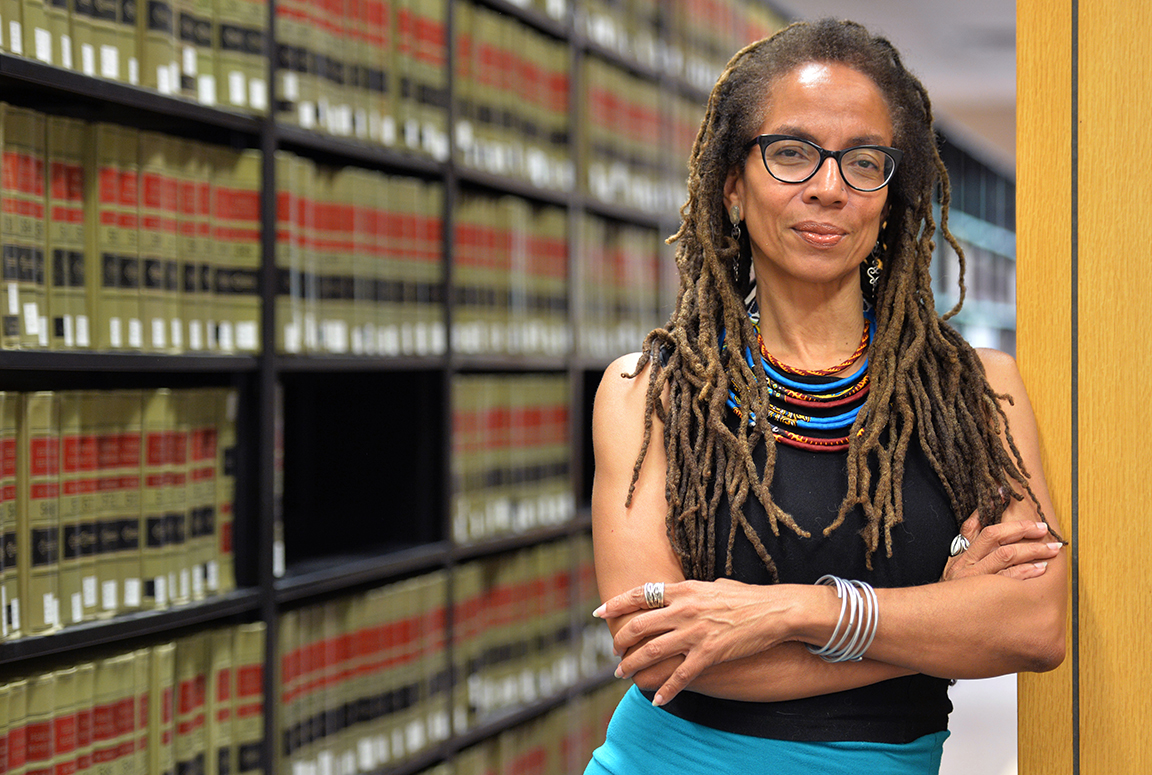
Florida’s House of Representatives has proposed a sweeping overhaul of how information is stored and disseminated throughout the state’s criminal justice system.
Drafted this week by the House Judiciary Committee, the bipartisan measure would create one uniform databank with information on everything from arrest and bail proceedings to criminal sentencing. That information would be made searchable and published to the public through the Florida Department of Law Enforcement website.
Justice system experts praised the legislation as a way to bolster transparency — and ultimately improve judicial fairness. They praised ongoing reporting by the Herald-Tribune for accelerating the data conversation and helping to spur reform.
“This bill is impressive, and the momentum over the last two years is no fluke,” said Deborrah Brodsky, director of Florida State University’s Project on Accountable Justice, referencing the newspaper’s reporting. “This, to me, is more important than any one sentencing fix or any single policy change. It fundamentally puts in a system that allows us to identify our failures and address them.”
The 30-page committee bill seeks to centralize Florida’s various criminal justice system databases by requiring court clerks, state attorneys, public defenders, jail operators and the Florida Department of Corrections to collect specific data elements and transmit that information back to FDLE weekly.
FDLE would then create a unique identifier for each criminal case — allowing the public to track that defendant’s experience at each step of the system.
The measure also calls for the state to digitize the criminal punishment code’s sentencing scoresheets. The form is used by the courts to ensure consistency in sentencing, with a point-scoring system that calculates recommended sentences based on the severity of the crime, the defendant’s prior record and a host of other factors.
If passed, the bill would launch as a pilot in Florida’s 6th Circuit Court, which consists of Pinellas and Pasco counties. The circuit would partner with a national, nonpartisan, not-for-profit organization to help compile and report data to the FDLE.
The measure authorized the state to hire nine new employees for the undertaking at a combined salary of about $665,000 and allocates $1.7 million in nonrecurring general revenues to begin the transition.
The Herald-Tribune left messages with four members of the House Judiciary Committee, but they did not get back to the newspaper by deadline Wednesday.
“You can’t come up with a solution to the problem unless you know the details,” said Judith Scully, a professor of criminal law at Stetson University. “We really need to see the hard data to determine what we’re dealing with, and design public policy to instill more trust. If people fear it’s unfair — or racially prejudiced — they won’t have trust in the system.”
“As lawyers and judges, we owe it to the public to be transparent and demonstrate a commitment to fixing these problems.”

Fractured data system
The bill comes after more than two years of reporting by the Herald-Tribune on racial biases in criminal sentencing. The work resulted in two investigations — “Bias on the bench” in December 2016 and “One War. Two Races,” which published last year.
Those series found Florida’s criminal justice system is stacked against blacks. When two defendants score the same number of points on their sentencing guidelines, indicating they should receive similar treatment, black offenders averaged far more time in lockup than comparable whites. The bias is especially evident in the war on drugs.
The two investigations also exposed serious concerns about how fractured the state’s criminal data system has become — and raised questions about the accuracy of the data the government now relies upon.
“My hope is that this raises the public’s level of awareness,” said Larry Eger, public defender for Sarasota’s 12th Circuit. “Here lies the importance of the fourth estate. It’s fallen on deaf ears for so long. You reported on this — and now you see the impact. It’s the power of public opinion.”

Proponents of criminal justice reform touted the new bill this year as “improved” and “much more encompassing.”
It requires court clerks to collect and relay 72 data elements, including information on bail, sentencing and the defendant’s personal characteristics — age, race and gender. Administrators at county jails will be responsible for another 22 data fields, the state attorney’s office will turn over 11 data elements, and public defenders will be responsible for five.
A. Wellington Barlow, a retired criminal defense attorney in Jacksonville, traveled the state last year to meet with judges about the problems with data and sentencing — using the Herald-Tribune’s reporting as proof. He was overjoyed to hear Wednesday that a fix had been proposed.
“We’ve been trying to push for a centralized system,” Barlow said. “Every judge we talked to agrees that the more data they have, the better it was for them to make educated decisions. It will help to avoid situations like the newspaper found with disparate sentences.”
The efforts in the criminal justice system follow steps taken by the state in recent years to improve data for transportation, education and health care, according to a House of Representatives staff analysis.
“Data-driven, research-based public policy should be the goal of our legislative efforts, and is what we should all strive to achieve. An essential requirement for this goal is robust, accurate and timely data collection,” Scott McCoy, senior policy counsel for the Southern Poverty Law Center, said in a statement.
“The House Judiciary Committee has released this proposed bill aimed at achieving better data collection and transparency for the Florida criminal justice system, so that policymakers, experts and the public can more easily access information to evaluate how the criminal justice system is functioning and failing,” McCoy said. “If enacted, this bill would be a valuable tool allowing Floridians to hold law enforcement, state attorneys and legislators accountable, and to press for common-sense, data-driven reforms.”